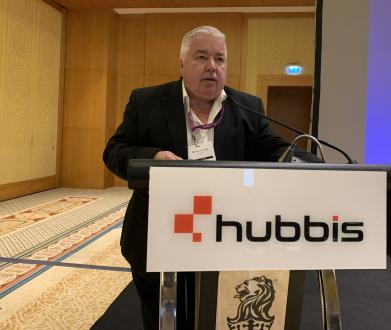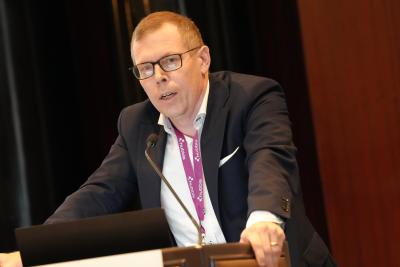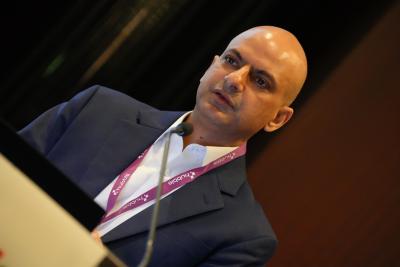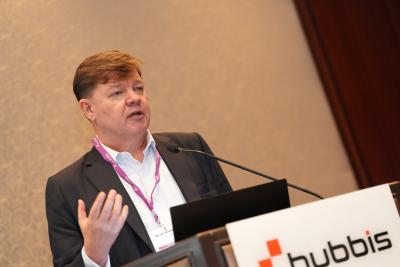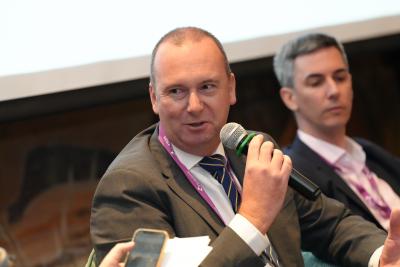PraxisIFM Trust on the Value of the Employee Benefit Trust in Abu Dhabi and Wider UAE
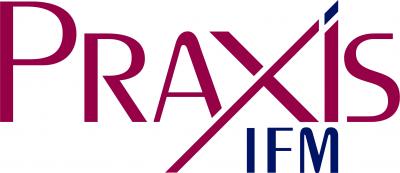
Feb 14, 2020
Martyn Crespel, Director of PraxisIFM Trust, gave a noteworthy presentation at the Hubbis Middle East Wealth Management Forum to highlight his firm’s ring-fenced employee benefit trust solution, which aims to resolve some of the practical shortcomings in the country’s EoSB programme, which stands for End of Service Benefit. He explained that this is a great step in formalising and protecting employee pension and other benefits, and the PraxisIFM solution is also helping to enhance the reputation and therefore future of the ADGM financial centre itself.
Gulf States' laws determine that any employees who have provided more than one year's continuous service to an employer are entitled to a lump sum payable at the end of their service. But all too often, the companies required to provide this either do not ringfence or fund these obligations properly, or they sometimes scurrilously use the money for their shareholders and management’s personal ends.
“The objective we have,” Crespel explained, “is, therefore, to help significantly improve the practices here, and for that, we are supported by the government, through entities we are working closely with.”
He explained that the structure is designed so that the EoSB is properly funded and held for those employees in trust, legally separated from employers’ operational assets and balance sheet.
“We are thereby firstly doing the right thing for employees, and also providing security, and moreover, we are actually helping with employee retention and even recruitment,” he clarified. “Moreover, as to the big picture, this helps support the development of ADGM as a reputable financial centre.”
Dubious behaviour
Crespel set the scene for why the PraxisIFM solution for the EoSB has come about. “The problem,” he explained, “has been, and indeed continues to be, the large number of UAE companies who perhaps accept that they have this obligation, but which have not necessarily provided it, or at least retained this obligation separately from their operational assets and balance sheet.”
“And at worst,” he added, “it could mean that you may have a situation where the chairman of the company you work for is driving around in your pension fund.”
Accordingly, he said there have been some rather high-profile cases where people have literally taken the fund and gone off somewhere with it. “In fact,” Crespel reported, “in one case recently it was reported in the media that an employer with some 50 staff wanted to buy a new property, so he took the pension fund and invested it in that real estate, all for himself. This is, of course, awful, but it is in the process of changing.”
Crespel then highlighted how his firm is taking the liability off the company’s balance sheet and putting it into the employee benefit trust vehicle, which represents the companies’ EoSB obligations.
There is a widespread reluctance to do this amongst companies in the UAE, he reported, because so many businesses are underfunded there. “Accordingly,” he elucidated, “our solution helps them distance themselves and to do the right thing for their employees, and thereby helping them deal with their liabilities in this regard, and also address any potential shortfall that has built up.”
Building the proposition
This, he extrapolated, translates to more positive reputations that help firms operating in Abu Dhabi and in the ADGM attract and retain key staff. He explained that eligible employees include those who are not enrolled in the Abu Dhabi Retirement Pensions and Benefits Fund, or any GCC country Pension Fund.
And he then offered delegates a flow chart slide of how this actually works. “It is quite simple,” he reported, “so our role is to get the monthly payroll data and contributions information and then we will provide the trusteeship and the administration and obviously safeguard the assets. The money then goes into a separate bank account in the name of Praxis as the trustee, with a designated bank in the UAE, and then from that, the investment is made, mostly right now in cash deposits. And we have excellent technology to support all this, so, for example, we offer every eligible employee access to a portal where their specific fund is available for them to view.”
Blue-chip partners
Crespel explained that his firm is more than bona fide, as it has partnered on this venture with an Abu Dhabi Government entity. “They wanted to plant a flag in the ground on this issue, you might say,” he explained. “And further giving us credibility, our anchor client is an Abu Dhabi government entity that has a vast number of subsidiaries, so we are fortunate to be in a great position of onboarding all of those subsidiaries into our scheme.”
There are, of course, challenges in advancing this to the world of other business entities out there. “A key issue has been the understanding of how a trust is structured and how it works,” Crespel reported. “But we help companies with financial modelling so they can see what we are aiming for and how we can help them.”
He closed his talk by telling delegates that PraxisIFM is now launching its own public relations initiative to expand awareness of the firm and this solution. “We need to get that message across to employees, individuals and companies to help them to do the right thing. We already administering schemes of some USD100 million dollars, and we have clear oversight on schemes totalling USD250 million. And then the next phase after we build further here is to extend this to other countries, including Saudi Arabia.”

Director at PraxisIFM

More from Martyn Crespel, PraxisIFM
Latest Articles


